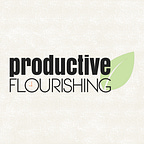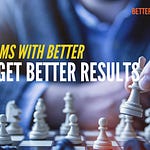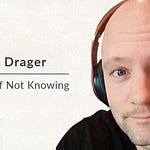The imposter syndrome is a major road block for many of us when it comes to doing our best work, especially if doing it requires us to start something new. “Who are you to do it?” rings so loudly inside us that we often can’t hear the other more helpful stories or see the other data points that show us that we’re on the right path. Dan Picket joins Charlie Gilkey for episode 59 to jam about how to debug the imposter syndrome.
Key Takeaways:
[0:55] Who is Dan Picket?
[1:02] Dan’s personal vision is to help people become the best version of themselves
[1:45] How is the imposter syndrome working on him right now?
[2:24] How did he get into programming?
[3:25] How did Dan start out in software development and programming?
[6:07] The stigma associated with software engineers.
[8:32] Why did he make the jump from Launchware to Launch Academy?
[10:59] How was the transition from entrepreneur to teacher?
[13:48] Computer software engineering is a rapidly evolving and multi-faceted universe!
[16:01] Disciplines that are in close periphery to software engineering are also affected by the pace of changing technology.
[17:07] What qualifies Dan to start Launch Academy?
[19:04] Imposter syndromes are so prevalent when you start something new.
[19:42] Dan shares two small anecdotes on overcoming the imposter syndrome.
[23:00] Only seeing the surface level of others’ work can make you feel like you’re not enough.
[24:32] The ironic thing about the imposter syndrome: it’s a self-fulfilling prophecy.
[26:36] Negative thoughts and stories can feed our fears and make us feel like an imposter.
[29:23] What would he do differently? Mindfulness.
[34:12] Always go back to your core values to see if what you’re doing is in-line with them.
[35:01] How does the imposter syndrome slide into the curriculum at Launch Academy?
[37:03] The zone of proximal development
[39:39] Advancement and growth only happens in discomfort.
[41:00] What’s his biggest challenge right now?
[44:52] Having patience and trust in others.
[46:06] The beauty of hiring based on core values and cultural fit.
[47:28] What is the one thing people could remember about Dan & his body of work from this episode?
Mentioned in this Episode:
Agile Education Method
Pam Slim Podcast (@ 22:04 min)
The Feeling Good Handbook by Dr. Burns
Emotional Obesity by Laura Coe
The World’s Religions by Huston Smith












